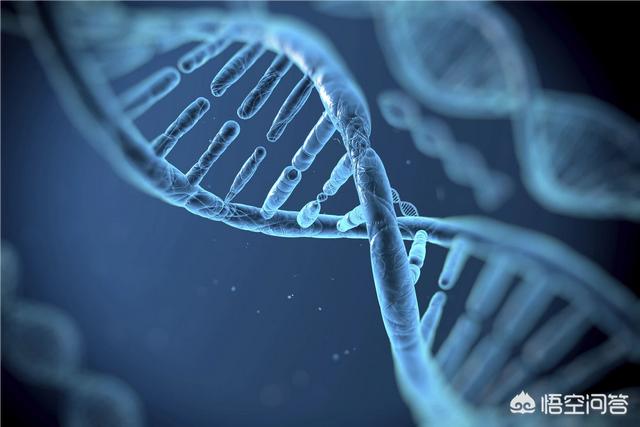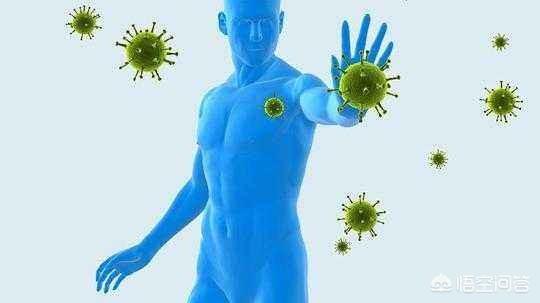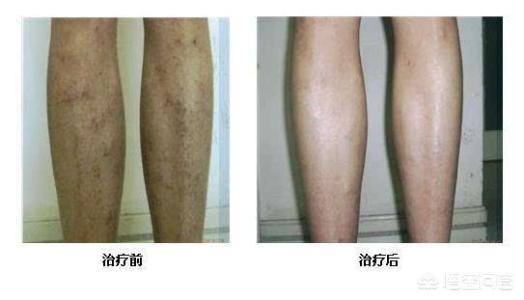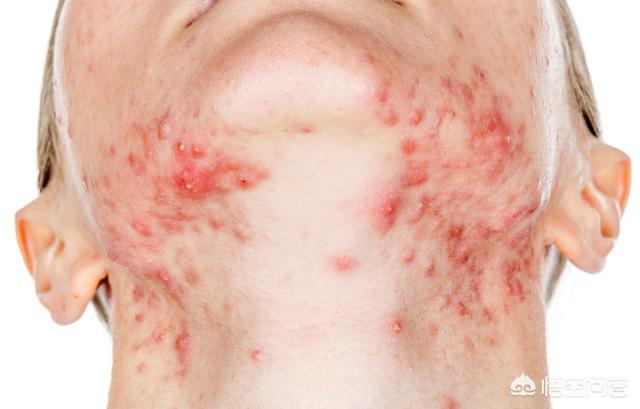What is the cause of the skin disease?
As the first line of physiological defense and the largest organ of the human body, the skin is always involved in the functional activities of the organism and maintains the unity of the organism and the natural environment, and abnormalities of the organism can also be reflected on the skin surface. The skin has nearly perfect physiological protection functions, such as barrier function, sensory function, regulation of body temperature, absorption, secretion and excretion, etc., in maintaining the health of the body, plays a very important role. Damage to the physiological functions of the skin causes skin diseases.
The most common causative factors in skin diseases are infectious diseases and allergic dermatitis, but with the degenerative changes of aging, geriatric skin diseases, skin cancer, etc. are also important skin diseases, in addition to the need to pay attention to a variety of skin disorders due to the side effects of medication to treat the disease. These are summarized in the following categories:
1. Physical and chemical factors
Factors such as pressure and friction, rapid changes in local temperature, radiation, light, thermal radiation, and chemical agents can cause skin disorders to develop. Some factors can aggravate the skin disease. Such as excessive scratching secondary infection; hot water scalding, soap and water washing, improper use of medication to aggravate eczema lesions; exposure to the sun can aggravate photosensitive diseases.
2. Biological factors
Insect bites, contact with certain plants, parasites and microbial infections are common causative factors, such as viral infections causing various viral skin diseases.
3. Food and other diseases
Some foods, such as shrimp, are prone to allergic diseases. Visceral lesions, local infections, blood and lymph circulation disorders can cause related skin diseases, such as diabetic patients prone to pruritus, local infections caused by infectious eczema-like dermatitis, circulatory disorders can lead to cyanosis, acrocyanosis and so on.
4. Genetic
Some diseases have a distinct family history, such as ichthyosis and albinism.
5. Neuropsychiatric factors
Nerve damage can cause trophic ulcers; stress is closely associated with tension and the development of pemphigus and chronic lichen simplex.
OMG! There are many kinds of skin diseases and there are many kinds of skin diseases. Some skin diseases have a definite cause, some skin diseases have not found a definite cause so far, and some skin diseases are so complex that they need to be extracted and may not be found, so let's take some examples.
The most common so-called nevus on the face is also called pigmented nevus, which is formed mainly due to the heredity of our genes as well as exposure to the sun and wind, but in some cases, some people grow more pigmented nevus on their body all of a sudden at a certain age. We are often asked by our patients, "Why are there so many moles on my body all of a sudden? To be honest, sometimes it's really hard to find the reason, all we can tell you is that it might be possible.
Another infectious skin disease, such as foot fungus and gray nails, have a specific pathogenic microorganism called a fungus. The fungus multiplies when it uses the stratum corneum of our skin as its base of existence under certain causal conditions. Under certain conditions, such as warm and humid environment, it is more likely to develop, so we will have itchy feet, blisters, gray nails will become yellow and thickened, this situation we need antifungal treatment, this is a clear pathogen, the cause is clear.
Urticaria is particularly itchy, and there are always recurring red spots and wind bumps, and in severe cases, the eyes and mouth will be swollen and angioedema will appear. Although it is said that the cause of urticaria is related to allergy, which may be related to our daily contact with clothing, food, housing, transportation, medication, mental stimulation, food additives, etc., but in the clinic we often encounter a lot of patients with urticaria, can not find the cause, even some acute urticaria, we are not good at finding the cause, careful questioning of the patient, and do not know what things are allergic to. Chronic urticaria, not to mention, so even if you check the allergens, most of the time you can not find, so the cause of urticaria is very complex, not very good to find.
Some immune skin diseases, such as lupus erythematosus, dermatomyositis, scleroderma, herpetic pemphigoid, pemphigus, herpes-like pemphigoid, and so on, are said to be related to immunity, but it is really hard to find a specific cause. There are also some skin diseases, such as vitiligo, psoriasis, etc., the cause is also very complex, and it is also difficult to find a specific cause.
Many skin diseases can be cured, many skin diseases can be controlled but always last for a long time, some skin diseases may not be cured and stay with you for the rest of your life, and some skin diseases can be left untreated and can coexist peacefully, so the specific problem should also be analyzed.
I've said a lot of answers about adult skin conditions before, and my personal opinion is that whether it's psoriasis, eczema, or hives, they develop as a result of three main factors.
1. Genes
2. Immunity
3. Environment

Genetic reasons, that is, hereditary attacks, such as elders and grandparents have skin diseases, psoriasis, then the offspring of psoriasis is much more likely to suffer from psoriasis, this at present, there is no solution to this, I personally have had acne, my mother also has, my grandfather also has, this is the genes, can not be avoided.

Immunity causes, is the body's own barrier, good health, the possibility of disease is much smaller, once the immunity is low, not only skin disease, anything will come to the door, this immunity can be changed, exercise, cold shower, can be effective in preventing disease, including skin disease.

Environmental reasons, this is very understandable, for example, you live in a damp basement for a month, do not love to take a shower, do not love to wash clothes, do not have a skin disease is strange, every day to eat big fish and meat, spicy seafood, the possibility of getting skin disease to be much greater.
In short, there are many types of skin diseases, very complex, and not a few words can be clear, if you suffer from skin diseases, do not blindly believe in folk remedies, and do not have to rely too much on large hospitals, Chinese medicine treatment is the most secure, the safest.
Hello, I am a TCM practitioner and I will answer from a TCM perspective.
From the perspective of traditional Chinese medicine, there are four main aspects: first, the individual's physical condition; second, the six external evils; third, the seven emotions and internal injuries; and fourth, uncontrolled diet.
I. Individual constitution
Physique is formed by innate genetics and acquired, in fact, physique is said to be the body's vitality, including the surplus and deficiency of qi and blood, the strength and weakness of the internal organs, but also includes the susceptibility to certain diseases and the tendency of the onset of the disease. Physique can be categorized into 9 basic types, i.e., calmness, qi deficiency, yang deficiency, yin deficiency, phlegm-dampness, dampness-heat, blood stasis, qi depression, and special endowment.
1, genetic predisposition: genetic parents of physiological and pathological characteristics, which plays a decisive role in the process of physical formation. Like psoriasis, ichthyosis, freckles, lupus erythematosus and so on.
2、Susceptible body: the specificity of the body determines the susceptibility to disease-causing factors or certain skin diseases, for example, people with yin deficiency body, dry skin is more prone to itchy skin; people with blood stasis body, dull or more pigmented spots, prone to freckles, chloasma; humid-heat body is prone to seborrheic dermatitis, acne and so on.
3, the development of the disease process: physical factors determine the development of skin diseases, such as special endowed with physical eating fava beans, white lentils, beef, mutton, goose, seafood, shrimp and crab, wine, chili, tea, coffee and other spicy products, fishy and nasty hair easy to appear eczema, hives and so on.

Image from the web
II. Six external evils
The six evils, i.e. wind, cold, summer, dampness, dryness and fire, are the general term for the six types of illnesses and evils. Under normal circumstances, wind, cold, summer, dampness, dryness and fire are the six climates that occur with the change of seasons in nature, which are called the six qi. However, if the six qi are too much, too little, or too abnormal, the six qi will invade the human body as a disease-causing factor and diseases will occur, and at this time, the six qi will be called the six evils.

Image from the web
III. Internal injuries of the seven emotions
Happiness, anger, anxiety, thoughts, sadness, fear and shock are called the seven emotions, which is a high degree of generalization of Chinese medicine on the human body's spiritual and emotional thinking activities. Everyday people have to carry out normal spiritual thinking activities, if a certain kind or a variety of emotions more than the normal range of activities, it becomes a disease-causing factors. Abnormal changes in seven emotions, will produce visceral dysfunction, causing visceral dysfunction, qi and blood yin and yang imbalance, which leads to the occurrence of skin diseases. For example, the heart is disturbed, heart fire, easy to suffer from erythema, pimples, scales and other diseases, mostly seen in psoriasis, neurodermatitis; sudden mental stimulation easy to suffer from baldness; anger injury to the liver, will make the face chloasma aggravation.

Image from the web
IV. Poor diet
Dietary intemperance is one of the most important causes of skin diseases, mainly through damage to the functions of the spleen and stomach, the occurrence of dampness, heat, wind, and toxins lead to the occurrence of skin diseases. For example, hungry and full, overeating, picking food, over-eating raw and cold, eating fat, sweet, thick and greasy, and so on.

Image from the web
The causes of skin diseases can be broadly categorized into 2 main groups, endogenous and exogenous: generally r
Extrinsic factors include: trauma, friction, frostbite, burns, sun spots, rays, insect bites, germs, mold, etc.; r
Intrinsic factors include: endocrine abnormalities, immune imbalances, metabolic disorders, infections by pathogenic microorganisms, and impaired metabolism of free radical toxins, etc.;r
In addition to the above factors, there is also a close relationship with age, surname, occupation, life links, seasonal changes, and living habits.
Thanks, the skin is the body's natural barrier. It is prone to allergic reactions during contact with the unknown. It's a process of adaptation for people. Some people react violently, some people react mildly. If you often have skin allergy manifestations, it is best to go to the regular hospital dermatology department to do the allergen test, reduce the contact of allergens, generally itchy discomfort, in order to anti-allergy treatment. Currently there are also desensitization treatments. There is no need to worry too much.
[2018-02-19 Chinese Medical Science Answer]As the question, thank you, to answer this question, you need to know that the causes of skin diseases are different treatment expectations are different, as with every disease, the current medical science can not be achieved to cure, in many cases only the amount of control of the disease will not further deteriorate or deterioration of the speed to become slow only. In many cases, the condition is only controlled to prevent further deterioration or to slow down the rate of deterioration.

We know that hormones are widely used in the treatment of dermatologic diseases, in addition to hormones have immunosuppressive, anti-inflammatory, anti-cytotoxic, anti-shock and anti-proliferative effects. For example, for drug rash, erythema multiforme, severe acute urticaria, anaphylaxis, contact dermatitis, systemic lupus erythematosus, dermatomyositis, pemphigus, pemphigus-like pemphigoid, and allergic dermal vasculitis. It is also necessary to decide the dosage of hormone use based on a comprehensive judgment of the severity of the disease, the response to hormone therapy, and the underlying disease. Long-term large-scale systematic use of glucocorticoids have more adverse reactions, mainly infections, gastrointestinal ulcers or perforation, electrolyte disorders, osteoporosis or ischemic osteonecrosis, as well as neuropsychiatric effects, etc., but also aggravate the existing diabetes mellitus, hypertension, etc., inappropriate dosage reduction or discontinuation of the drug can also cause a rebound of the condition, the long-term topical use of the local skin can also cause atrophy, capillary dilatation, acne and folliculitis. etc.
Vitamin A acid drugs are a group of compounds similar in structure to natural vitamin A. They can regulate the growth and differentiation of epithelial cells and other cells, inhibit the growth of malignant cells, and also regulate the immune and inflammatory processes, etc. The main adverse reactions include teratogenicity, hypertriglyceridemia, hyperglyceridemia, hypercalcemia, early closure of the bones, skin and mucous membranes dryness, liver function abnormalities, and so on. Immunomodulators can enhance the body's non-specific and specific immune response, so that the imbalance of the immune response tends to normalize, mainly used in viral skin diseases, autoimmune diseases and skin tumors, such as adjuvant therapy.
Hope you can help, welcome to pay attention to the "Chinese medical science platform" headlines, to get more professional and original medical science knowledge, this article for the original content, unauthorized refused to reproduce.
"What causes skin diseases?" I will now answer in detail.
Let me first briefly explain what a skin disease is. Skin disease is a type of disease that manifests itself on the surface of the skin due to dysfunction in the body. There are many possible causes of skin disease, which can be categorized into two main aspects: internal and external causes.
Endogenous:
Skin as the body's first line of physiological defense and the largest organ, always involved in the body's functional activities, to maintain the body and the natural environment of the unity of opposites, the body of any abnormalities can also be re-surface the skin, reflecting. For example: psoriasis, psoriasis, vitiligo skin manifestations, both with abnormal cell division, pathogenic microbial infections and the toxins they produce, metabolic disorders, immune imbalance, endocrine disorders, free radicals toxin metabolism disorders, and even with the mental, neurological pathology has an indirect or direct relationship.
Exogenous factors:
Mechanical: e.g. trauma, friction erythema
Physical: e.g. frostbite, burns, sun spots, radiation dermatitis, etc.
Biological: e.g. insect bite dermatitis, leech bites, germs, molds, etc.
In summary: In addition to this, factors such as age, gender, occupation, season, environment, and lifestyle habits also have a relationship with the occurrence of skin diseases.
Thanks for the invitation, there are more than 2,000 dermatologic conditions, and not many have a clear cause. The ones that are fully understood are mostly infectious skin diseases, like viral, bacterial, fungal and sexually transmitted diseases. There are also single-gene diseases that have a clear cause. Most diseases have complex causes and are not caused by a single factor. Last week one of my patients asked me what the cause was. I said that the cause of this disease is not clear, no one knows why this disease, she was very angry and yelled at me, how do you know nothing, I'm not this disease for nothing? I said that your diagnosis is clear, the treatment is recommended to do laser, eating medicine coating is useless. She then yelled: doctor, I just want to spend some money on you! I said you can not spend a penny ah, I know that the medicine coating is not useful for your disease, why give you a medicine nick! In the end, she was very agitated and left. After work, I reflected on myself, I think I should give her a symbolic prescription of a little bit of medicine to comfort her heart? But the doctor's profession is to tell the truth, not sloppy.
To chase away these annoying skin conditions, you should take care of the following points:
(1) reasonable diet: the people often say "hair", including some easy to trigger the body allergic dermatitis food, common shrimp and crab, milk, egg white, soybeans, beef, mango, cashews, etc., while consuming some stimulating foods such as chili peppers, garlic, leeks, cinnamon, etc. is more likely to trigger the occurrence of allergic skin disease. There are also some people consume photosensitive food can also lead to photosensitive skin disease, these foods contain photosensitive substances into the human body, if irradiation of sunlight skin, will react with it, life in the common photosensitive food ash, parsley, rape, celery, snow, lemon, mango, pineapple and so on. Everyone in life, first of all, avoid eating foods known to be allergic to, eat a light diet, eat more vegetables, fruits to supplement vitamins, at the same time to a reasonable diet, not picky about food, balanced nutrition.
(2) reasonable skin care: the skin is the body's first barrier against the external environment, dry skin in the spring, the temperature changes easily caused by skin barrier damage, contact with allergic substances to promote the occurrence of skin diseases. In the spring daily skin care, the most important thing is to moisturize and emollient, at the same time to avoid repeated scratching of the skin, do not use too hot water bath, a reasonable water temperature is 25 ℃ -35 ℃, at the same time can not be over-bathing in the spring a reasonable number of baths is 2-3 times a week, as well as for the eczema that has been suffering from itchy skin diseases such as patients, do not use soaps, shower gels and other alkaline detergents. For photosensitive dermatitis patients, sunscreen, but also need to choose the right shade. In addition, avoid the use of expired, complex ingredients, containing hormones and other skin care products, choose a new product can first be tried on the back of the hand, no adverse reaction can continue to use.
(3) Avoidance of special environments: everything revives in the spring, microorganisms, pollen are beginning to appear, flowers and plants on both sides of the road, urban parks and rural wilderness are easy to contact with allergic substances in the environment, allergy-prone patients have to wear good clothing, with a good mask, try to avoid such environments, at the same time, but also to keep the room where they live in a clean and hygienic, and diligent laundry and so on. In addition, before and after the Qingming Festival, more rain, air humidity, is the environmental hotbed of mold, pests, but also easy to cause one of the causes of allergic skin disease, pay attention to the timely closure of windows and ventilation, clever use of desiccant, sunny days time to remember to dry sheets, quilts, to maintain a dry, clean environmental health.
(4) Healthy living habits, enhance physical exercise: the human body's immunity, endocrine balance and healthy living habits are closely related to stay up late, tiredness, mental stress, unhealthy diet will reduce the human body's immunity, which leads to a variety of skin diseases, therefore, have a healthy lifestyle for the human body's health and its importance. In addition, reasonable physical exercise, can improve the body's resistance, can improve the skin's nutrition, enhance the body's resistance to various factors of the external environment.
👉 For more health science information, welcome to follow @HunanMedSound ❤️
This question and answer are from the site users, does not represent the position of the site, such as infringement, please contact the administrator to delete.